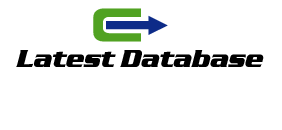Leads are typically generated through various marketing channels such as website forms, content downloads, or event registrations.
Basic contact information (name, email, company) is collected initially.
Lead Scoring:
Definition: Lead scoring assigns numerical values to leads based on their characteristics and behaviors.
Criteria: Factors for scoring can include demographics (company size, industry), engagement level (website visits, email opens), and interest indicators (content downloads, webinar attendance).
Scoring Models: Develop scoring models where actions like visiting pricing pages or requesting demos increase scores, indicating higher interest and readiness to buy.
Lead Qualification Criteria:
BANT Framework: Qualify leads based on Budget, Authority, Need, and Timeline.
Budget: Does the lead have the financial resources to purchase your product or service?
Authority: Is the lead a decision-maker or influencer who can authorize purchasing decisions?
Need: Does the lead have a genuine need or pain point that your offering can address?
Timeline: What is the lead’s timeline Phone Number Lists
for making a purchasing decision?
Marketing Qualified Leads (MQLs) vs. Sales Qualified Leads (SQLs):
MQLs: Leads that have shown interest and engagement with your marketing efforts but may not yet be ready for direct sales engagement.
SQLs: Leads that meet specific criteria indicating they are ready for direct sales follow-up and have a higher likelihood of converting into customers.
Lead Nurturing and Follow-Up:
Lead Nurturing: For MQLs, continue nurturing through targeted content and personalized communications to move them closer to a purchasing decision.
Sales Engagement: SQLs are handed over to the sales team for direct outreach, where sales reps can focus efforts on closing deals based on established criteria and timelines.
Feedback Loop and Optimization:

Regularly review and refine lead qualification criteria based on feedback from sales teams, conversion rates, and customer feedback.
Use data analytics and CRM systems to track the effectiveness of lead qualification strategies and adjust as needed to improve conversion rates and sales outcomes.
Benefits of Effective Lead Qualification
Improved Conversion Rates: By focusing efforts on qualified leads, sales teams can increase their conversion rates and achieve higher ROI on marketing investments.
Efficiency: Streamlines sales processes and reduces time spent on leads that are unlikely to convert, allowing for more effective use of resources.
Alignment: Aligns marketing and sales efforts by ensuring both teams are targeting and prioritizing leads that are most likely to result in revenue.
By implementing a structured lead qualification process, businesses can enhance their lead generation efforts, increase sales effectiveness, and drive sustainable growth.


